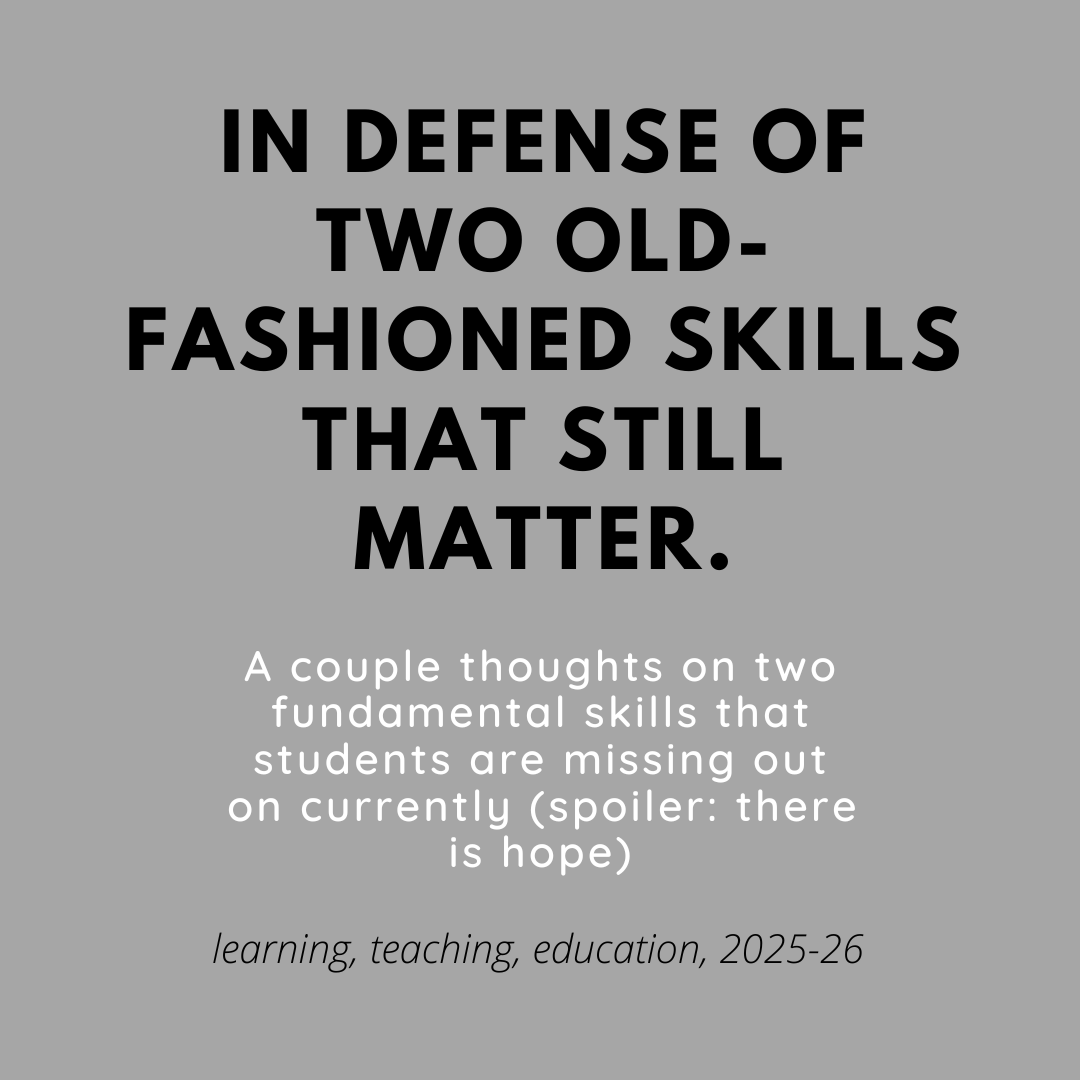When I called somone a different pearson’s name.
Third grade - Reading Comprehension.
He read through a story about three fishes; the idea being to make connections about prior knowledge in order to understand the text.
I think one of the most complicated things about teaching (and parenting) is finding the right balance of encouragement and challenge. In other words, to locate or create the optimal mix, on a given day at a given point, of providing compliments and criticism - and I view the word “criticism” as something positive, as a word intended to provide specific feedback and frame meaning around work that was created or done.
All praise, and it’s taken for granted. Resilience is stripped down and the ability to move on when mistakes are made becomes increasingly difficult if you’re a person who survives on only hearing vacuous and general compliments about what you’ve done.
All criticism, and it’s hard for a person to feel good about what they have done well, what they have accomplished and have created and have done - and will do.
How do you keep momentum and energy and the desire to learn going, ever going, in a manner that is driven by the own internal beat of their heart and the steadfast belief that to continue learning is good and desirable?
These are things I think about. Finding the optimal balance of such things. It does not, does not mean I do them well consistently. But I do hope, through the act of reflecting, examining, self-assessing, and being tuned in to emotional rhythms of those I work with, that I will increasingly grow more effective as a parent and teacher in helping them develop intellect, character, creativity, talents, and relationships.
So, on his paper, I made a list of words he misspelled in the side margin: person (pearson) and imagine (imagan). There were points where he got sloppy: prety for pretty, and the handwriting showed it. His mind was on other things, namely: the Endangered Animals booklets, illustrations, writing, and research that consume most of he and his younger brother’s discretionary time.
Q: How do you feel about taking tests?
A: prety good.
My notes:
Please elaborate.
What do you mean?
Please use a complete sentence.
But…perhaps most importantly, in terms of insights, this is what he answered in response to the following question:
Briefly tell about a time when you felt dumb.
His answer: When I called somone a different pearson’s name.
When I look at the spelling and grammar and syntax areas that could be improved, it’s easy for me to get lost in the trees. Then I look at the striking nature of that question and response about a time when an 8-year old felt stupid:
When I called someone a different pearson’s name…
Talk about a situation that prety much every one of us has been in. It’s a little thing. A normal thing. At this point in my life, I don’t…feel dumb about calling someone the wrong name. Although…actually…
…yeah, that’s not true. I still do feel dumb sometimes, and sometimes for the very same reason. And why? Why should we feel that way? It’s a terrible feeling, the feeling of feeling dumb because you forgot something or overlooked something obvious.
I have already exhausted a lifetime’s worth of these two categories: 1) forgetting something and 2) overlooking or struggling with something obvious. It has helped to remind me that many things that are easy for me are struggles for others, and the inverse is true:
struggles that I have may seem obvious or dumb to others.
So what can I do? I can try to not treat, as dumb, those situations where it’s others who overlook something obvious, or forget something silly, or do or say any number of other things that feel dignity washing away.
If the sentence below is not a mantra for every pearson in this world…it should be:
If one of our mantras as humans should be to uphold the dignity of those around us, then…this is an incredible opportunity to be reminded. How many lessons are more important than this one today, in this current culture of inattention, callousness, and casual cruelty masquerading as dialogue or humor?
So, despite my love of spelling and real good grammar, I feel like those lessons pale in comparison to the big one that I, along with most, need to be reminded of:
How can we uphold the dignity of those around us?
This is the core of a set of principles that can guide people’s lives. I want it to be a guiding one for me and for our family.



